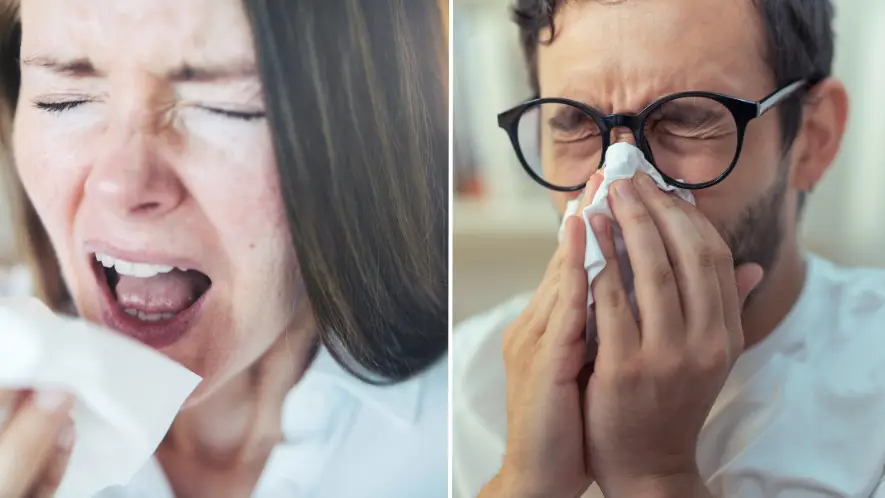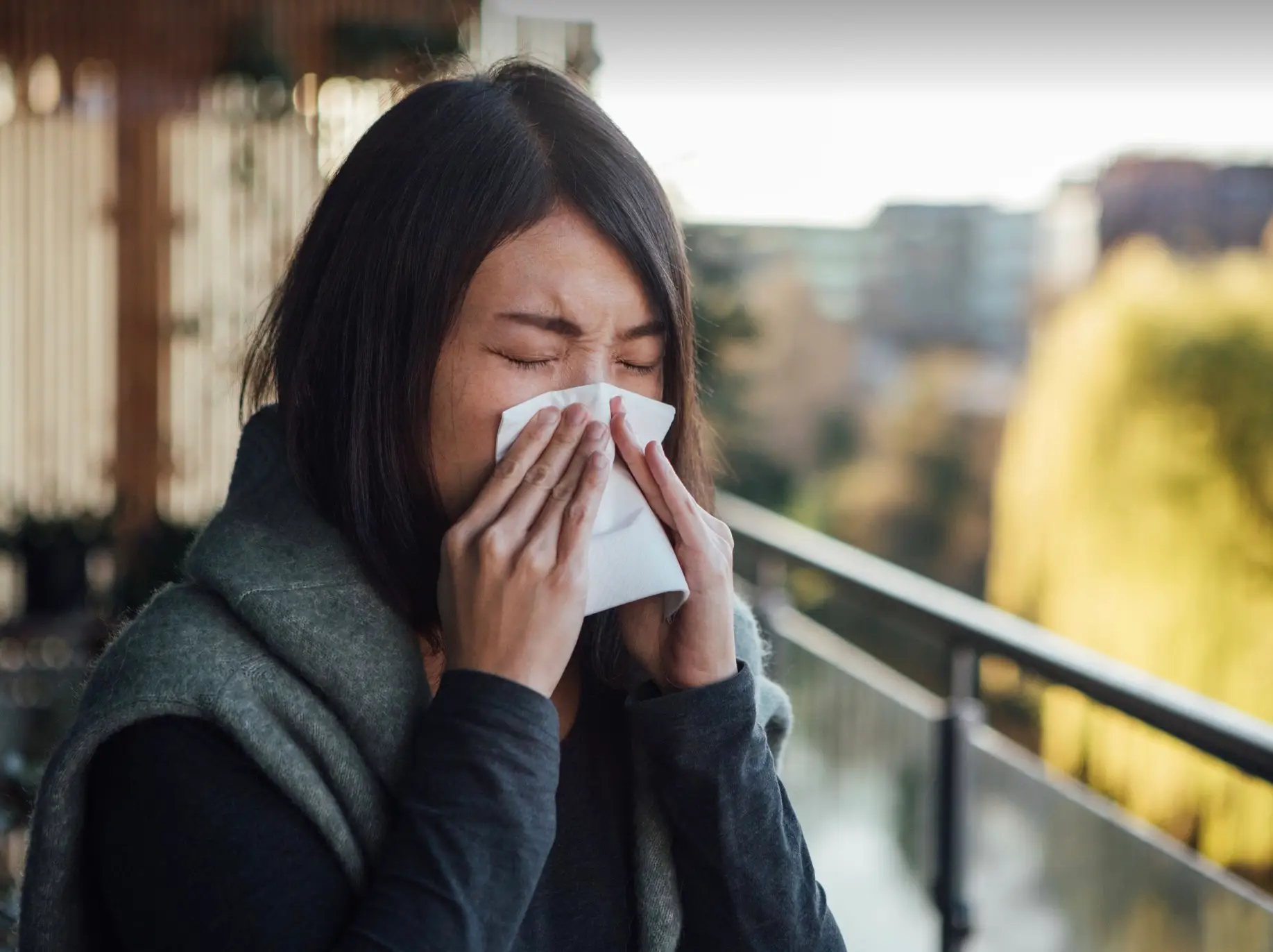
Doctors have issued a health warning after a man tore a hole in his throat following a sneeze in a case so rare it's now the subject of research.
Health have spoken out after the man from Scotland suffered the 0.08-inch tear after making a dangerous mistake many of us are guilty of doing when sneezing.
The case is thought to be the first of its kind, and medics found that the tear was between the third and fourth bones of his neck.
He was rushed to hospital as air was building up in the space between the lungs in his chest.
Advert

Despite the urgency of the situation, the man did not need surgery.
It was later discovered that the man suffered from Hay Fever, a condition where the nose becomes irritated by pollen.
Pollen levels across the UK are currently high and are set to remain at this level until Friday, according to the Met Office.
The Scottish man suffered the tracheal perforation as a result of trying to stifle his sneeze, which is what medics are now warning people to avoid.
The man in his thirties was driving at the time of the incident.
He attempted to pinch his nose and close his mouth to avoid the sneeze, which resulted in the tear.
Talking to the Mirror, Dr Rasads Nisirovs said: “Everyone should be advised not to stifle sneezes by pinching the nose while keeping the mouth closed as it can result in tracheal perforation."

Hay Fever impacts a quarter of Brits and can cause a whole host of symptoms such as sneezing, an itchy, runny or blocked nose, itchy, red and watery eyes, a cough and an itchy roof of the mouth.
Medics have urged people to look out for the symptoms of a tracheal perforation, after this is the only known case to be reported.
The patient's neck was swollen on both sides and he was struggling to move it.
He spent two days in hospital, where he was monitored by doctors to ensure that his oxygen levels stayed steady.
They then discharged him and gave him painkillers alongside Hay Fever drugs, and the tear healed in five weeks.
Dr Nisirovs added that ‘patients must be closely monitored as inpatients for 24 to 48 hours for any deterioration’.
